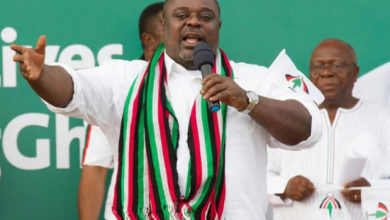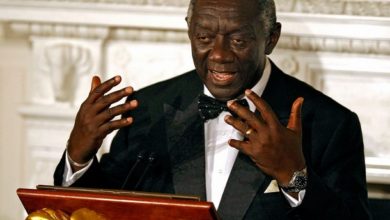Rebellion against TV license fees ‘unfounded’ – Adom-Otchere

Host of Good Evening Ghana on Accra-based Metro Television, Paul Adom-Otchere, is courting support for the payment of TV license fees that will largely benefit the Ghana Broadcasting Corporation (GBC).
This, he believes will help GBC effectively discharge its role as a public broadcaster.
The setting up of a special court by the Chief Justice to prosecute people for non-payment of TV license fees to the state broadcaster, has been met with mixed reactions.
While some have suggested that agencies like Ghana Standards Authority or the Ghana Revenue Authority should take charge of the collection of TV license fees instead of GBC, others have argued that the move is needless, given the fact that other countries are gradually moving towards abolishing the fees.
GBC has a crucial role
However, Adom-Otchere takes a different position, arguing that public broadcasting is a very important element in democratic development, hence the need for GBC to be supported financially to carry out its mandate.
“It is in support of establishing an institution called the public service broadcaster and a public service broadcaster is a necessary institution for any development agenda especially of a developing country. All over the world, countries that have developed have always maintained a public service broadcaster.”
Unfounded criticisms
Mr. Adom-Otchere believes criticisms against the license fees and GBC in general, are unfounded, since the state broadcaster has over the years been denied the requisite resources needed to effectively discharge its duties.
“I get a sense of a very high rebellion on social media against the principle and I think the rebellion against state institutions must be measured. We should channel our energies of rebellion against politicians who are either corrupt or incompetent, but these regular rebellion against state institutions in the case of GBC now I am not sure it is sufficiently founded.”
“I have heard people say they will not pay because the content is poor, and I agree that the content is poor, but why is the content poor? Perhaps the content is poor because for the longest time, we have not been able to pay TV license. Any Ghanaian who is above the age of 20, or above the age of 40 would have had historically in his life, a certain memory GBC has brought into your home. GBC has covered all these events historically but we have not paid for it so if you look at it you can even consider that you are paying for the historical event for GBC …”
Some critics have suggested that the payment of TV License fees will not necessarily improve GBC’s content to enable them compete favourably.
No need for competition
Mr. Adom Otchere indicated in his Citi FM interview that, “GBC ought not to be part of the competition” involving other media houses.
He believes GBC should rather be singled out as a state broadcaster and be equipped with the necessary resources to effectively deliver on its mandate.
“GBC ought not to be part of the competition -that is the whole point of a public service broadcaster. Take them out, strengthen them and let them be the public service broadcaster. Let them not worry about competition.”
GBC officially reintroduced the collection of the TV Licence fees in 2015, after years of putting it on hold due to non-payments.
Domestic TV users are to pay between GHc36 and GHc60 for one or more TV sets in a household, while TV set repairers and sales outlets are to pay an annual sum of between GHc60 to GHc240.
Officers at the some Revenue Offices of the Ghana Broadcasting Corporation (GBC), have said payments of TV license fees have been encouraging for the past few days.
This is how the TV License revenue is to be shared
GBC – 72%
GIBA – 15%
NMC – 4%
Media Development Fund – 4%
Films Fund – 2%
Management of TV Licence Fee (GBC) – 3%






10 Comments